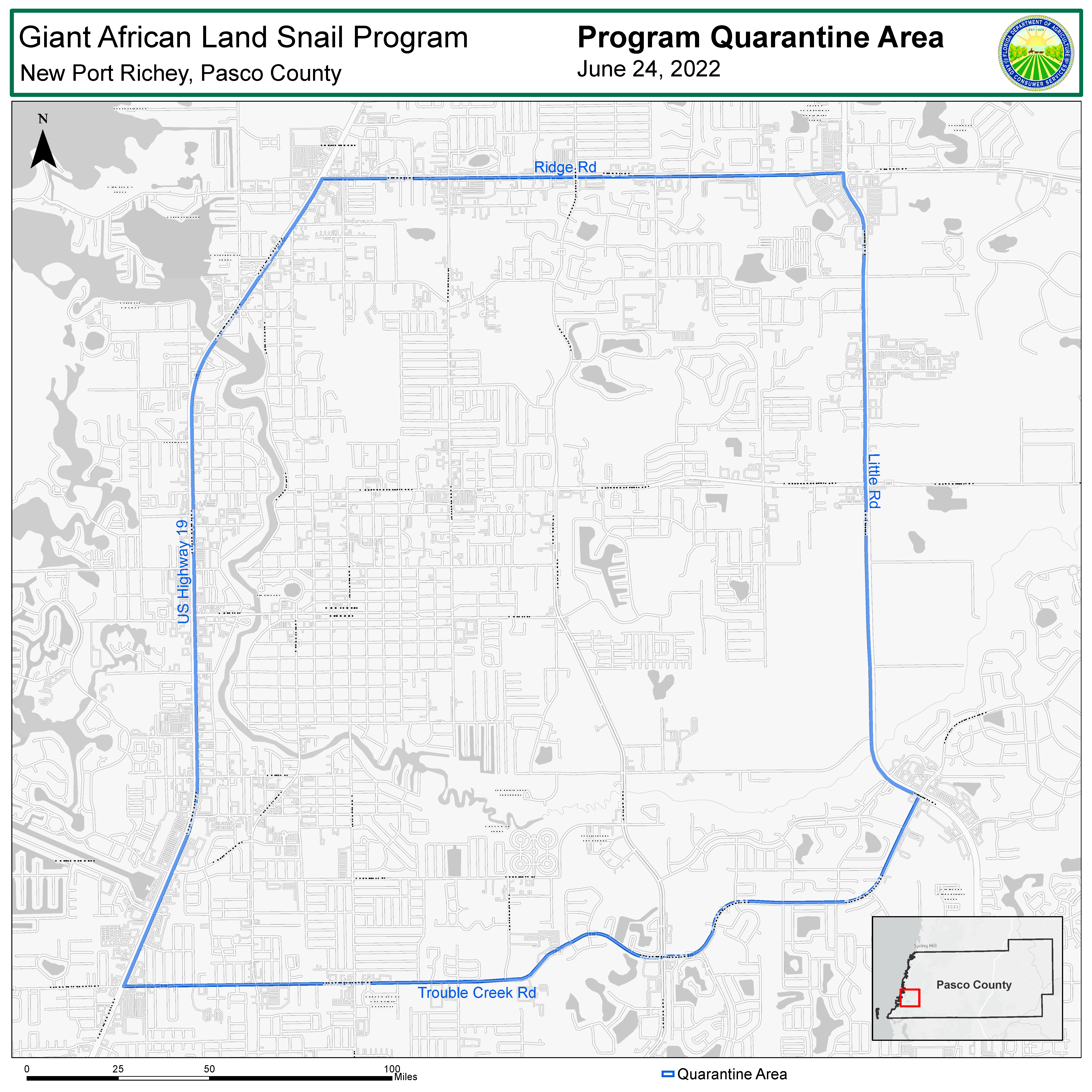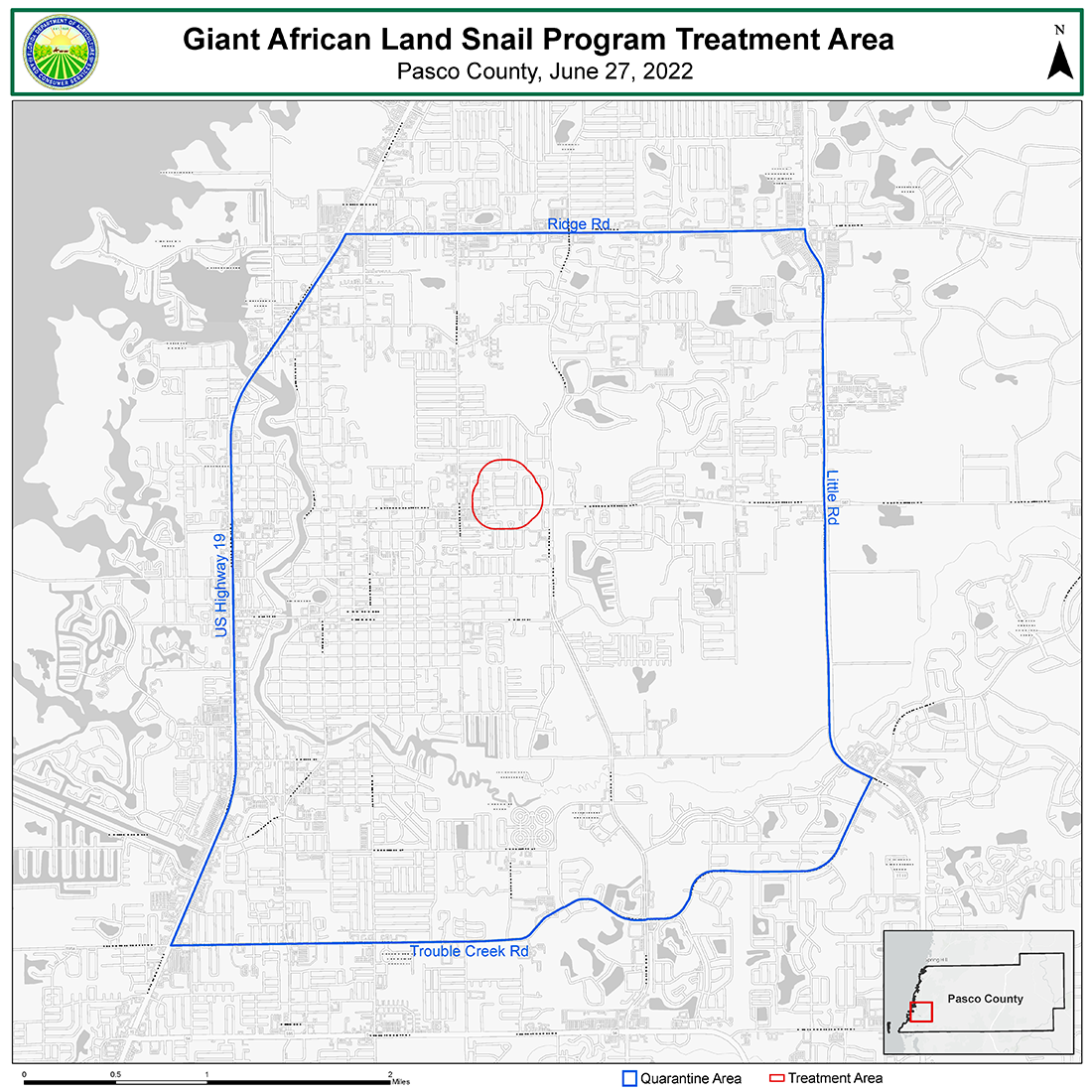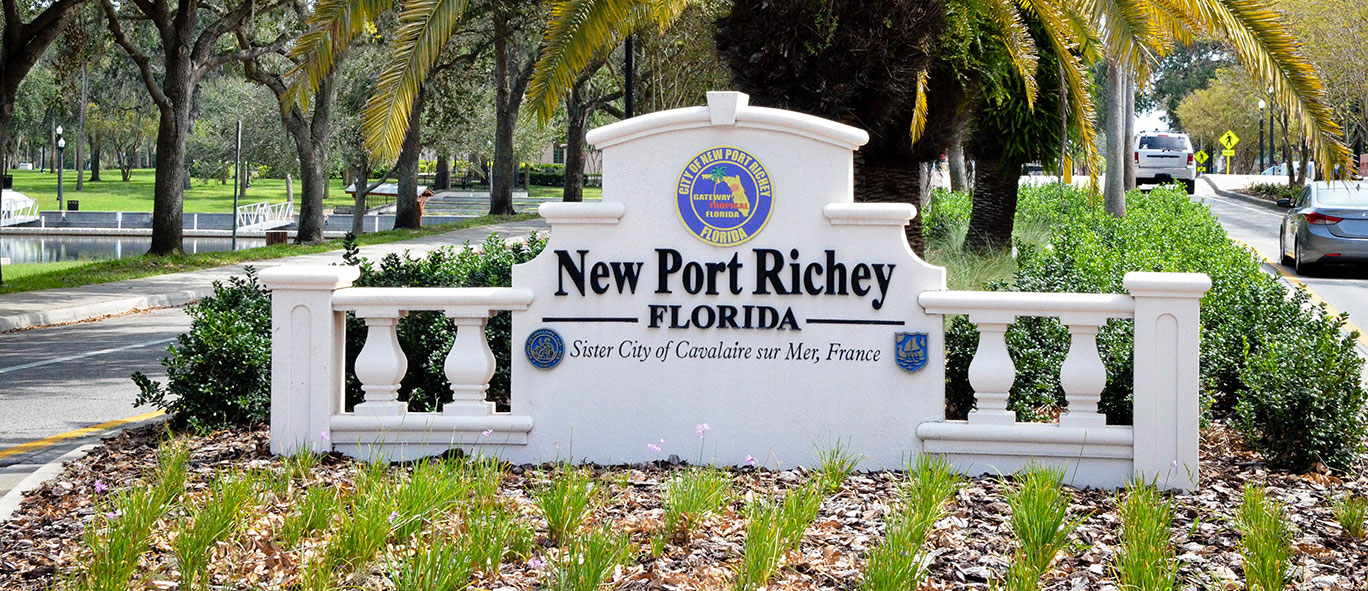
The giant African land snail is one of the most damaging snails in the world and consumes at least 500 different types of plants. These snails could be devastating to Florida agriculture and natural areas as they cause extensive damage to tropical and subtropical environments. The snails also pose a serious health risk to humans by carrying the parasite rat lungworm, known to cause meningitis in humans. Giant African land snails are illegal to import or possess in the United States without a permit.
The giant African land snail has been eradicated twice in Florida. The first detection was in 1969 and was eradicated in 1975. The most recent eradication of this pest was in 2021 from a detection in 2011 in Miami-Dade County. Prior to the recent detection, the last live snail in Florida was collected in Miami-Dade County in December of 2017.

DO NOT HANDLE SNAILS WITHOUT WEARING GLOVES!
Pasco County Program Information
Regrettably, the presence of Giant African Land Snails was confirmed in July 2024, necessitating the restart of the three-year quarantine period.
FDACS's Division of Plant Industry has begun to survey the area, enacted a quarantine and will begin treatment for this detrimental pest on June 29, 2022. FDACS will treat properties with a metaldehyde-based molluscicide (snail bait). The treatment is labeled by the U.S. Environmental Protection Agency for residential use.
Think you found a giant African land snail? Refer to the ID sheet below. Still not sure? Email a photo for identification to DPIHelpline@FDACS.gov
Snail ID Sheet opens in a new window(FDACS)
Giant African Land Snail Pest Alert (FDACS)
Frequently Asked Questions About Metaldehyde for Controlling Snails and Slugs
Quarantine
A quarantine is in place starting at the northwest corner of U.S. Highway 19 and Ridge Road. Proceed east on Ridge Road, south on Little Road, west on Trouble Creek Road, north on U.S. Highway 19 (see map).
Per guidelines provided for by the Florida Department of Agriculture and Consumer Services, it is unlawful to move the giant African land snail or a regulated article, including but not limited to, plants, plants parts, plants in soil, soil, yard waste, debris, compost or building materials, within, through or from a quarantine area without a compliance agreement.
To obtain a compliance agreement, call 1-888-397-1517 or email DPIHelpline@FDACS.gov
Sample Compliance Agreement for Nursery/Stock Dealer/Garden Center
https://www.fdacs.gov/content/download/104745/file/08486%20sample.pdf
Sample Compliance Agreement for Solid Waste Facilities and Commercial Trash Haulers https://www.fdacs.gov/content/download/104746/file/08487%20sample.pdf
Sample Compliance Agreement for Landscape/Lawn Maintenance
https://www.fdacs.gov/content/download/104747/file/08488%20sample.pdf

Starting at the NW corner of US Highway 19 and Ridge Road, proceed E on Ridge Road, S on Little Rd, W on Trouble Creek Rd., N on US Highway 19.
Treatment
Treatment to eradicate this pest will begin on Wednesday, June 29, 2022. Metaldehyde is a pesticide used to control snails and slugs and is approved for use in a variety of vegetable and ornamental crops in the field or greenhouse, on fruit trees, small-fruit plants, in avocado and citrus orchards, berry plants, banana plants and in limited residential areas. Available products can be applied as granules, sprays, dusts or bait pellets. Applications are typically made to the ground around the plants or crops to be protected.
Property owners inside the treatment area will be notified in person or by posted notice at least 24 hours in advance of the planned pesticide treatment.
Metaldehyde works by disrupting the mucus production ability of snails and slugs. This reduces their digestion and mobility and makes them susceptible to dehydration. Snails and slugs that have eaten metaldehyde often seek hiding places, become inactive and begin to die within days.

Public Health Information
Giant African land snails pose a serious health risk to humans by carrying the parasite rat lungworm, known to cause meningitis in humans. The snails should not be handled without proper protection and sanitation.
Fact Sheet on Rat Lungworm Parasite (Florida Department of Health)
Rat Lungworm Information (Centers for Disease Control and Prevention)
USDA Resources
General Information About Giant African Land Snails (USDA)
Giant African Land Snail ID Card (USDA)
Giant African Land Snail Survey Report (Florida Cooperative Agricultural Pest Survey)
